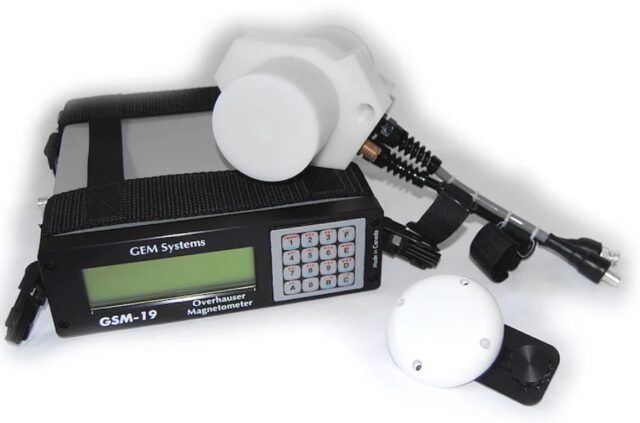
A magnetometer is a beneficial electrical instrument or device that aids in measuring the magnitude, relative change, direction, and strength of a magnetic field in a particular location.
The device can also estimate and calculate the value of the magnetic dipole moment of substances. It stands true, especially for magnetic materials like ferromagnets. It does so by determining and recording the effect of the dipole moment. It is observable on the induced current in a specific current-carrying or conducting coil.
History of Magnetometers
The first noted evidence of a working magnetometer was recorded in 1833. Invented by Carl Friedrich Gauss, the head of the Göttingen Geomagnetic Observatory, the machine could measure the value of the absolute magnetic intensity at a specific point in space. The initial design comprised a permanent bar magnet. It remained hanging or suspended along the horizontal plane from a gold fiber.
Gauss measured the varying differences in the oscillation of the magnet. He did so in both its demagnetized and magnetized state. From there, he could estimate an absolute and consistent value for the strength of the Earth’s magnetic field.
Following this, the device underwent several developments during the 19th century. In 1846, Charles Brooke and Francis Ronalds invented magnetometers. Those instruments recorded the swinging motion of the permanent bar magnet continuously. They implemented the use of photography to capture the oscillations.
One addition to the modern versions of magnetometers consists of the Hall effect. It got implemented after several trials and errors and developments.
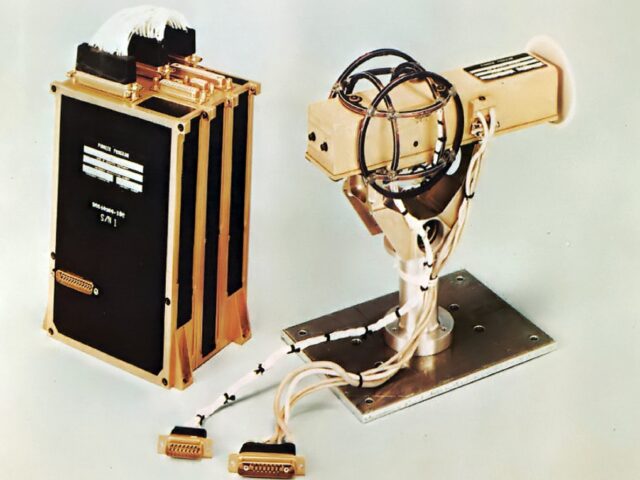
Application of Magnetometers
In recent times, a magnetometer gets used in numerous domains, fields, sectors, and industries. It has a varied application range and can find applications in multiple areas. A few uses of a magnetometer include:
1. Compass
Modern magnetometers have a compact size. The exceedingly small ones have gotten miniaturized to a considerable extent. It enables them to get incorporated into the systems of an integrated circuit effortlessly and at a low price.
For these reasons, magnetometers get used as MEMS (Micro-Electro-Mechanical Systems) magnetic field sensors or miniature compasses. Modern mobile phones and smartphones serve as the most common application of these systems.

2. Monitoring of Health Care Systems
A magnetometer can find a colossal number of applications in the health care sector. They serve to be exceedingly beneficial during cardiac surgeries and nurturing within the diagnostics systems and machines that measure the heart rate and functions of the patient.
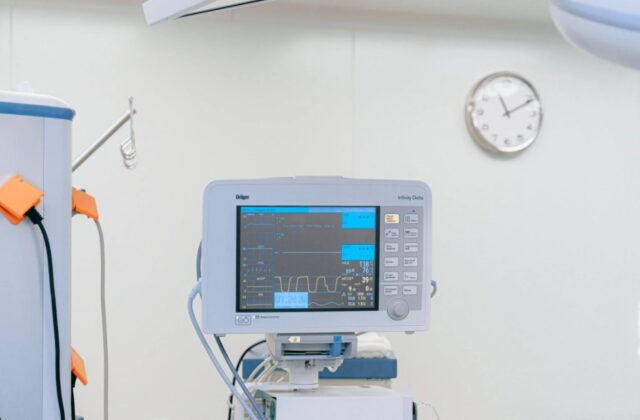
3. Detection and Discovery of Hidden Metals
Magnetometers can detect the magnetic field in an area. Hence, they can help discover the locations of ferromagnetic metals that have even the faintest trace of magnetism in them.
Additionally, the devices help in traffic monitoring by detecting the metal components of the vehicles. In airports and other public places, they get used to detect weapons that an individual may have concealed within their clothes or bags.

4. Magnetic Surveys
A magnetometer can be used to detect and discover mineral deposits in particular places and get more such areas in the vicinity. It can also help locate and find lost objects that have magnetic substances or materials in them. These kinds of magnetic surveys can get categorized into the following:
• Aeromagnetic survey
• Ground survey
• Borehole survey
• Marine survey
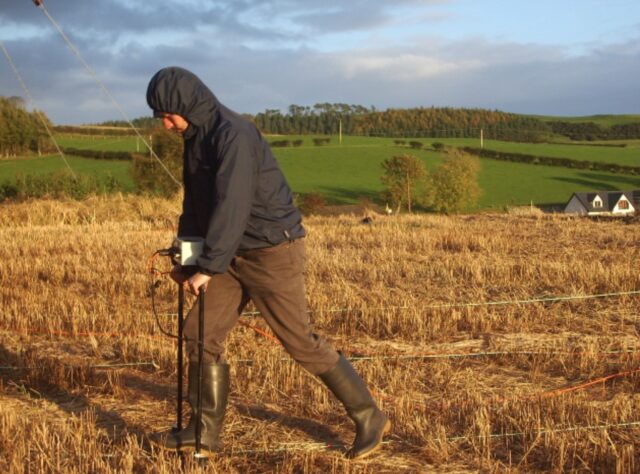
5. Gradiometers
A magnetic gradiometer consists of pairs of magnetometers. They have their sensors separated horizontally and fixed from each other at a distance. The readings taken from each get subtracted to estimate the difference between the present magnetic fields. It proffers the field gradients that arise due to the interfering magnetic anomalies.
Gradiometers can enhance the effects of shallow or faint magnetic anomalies. Hence, they are a beneficial device in site investigation and archaeological work. They are also helpful for real-time operations like the detection of locations for unexploded ordnance.
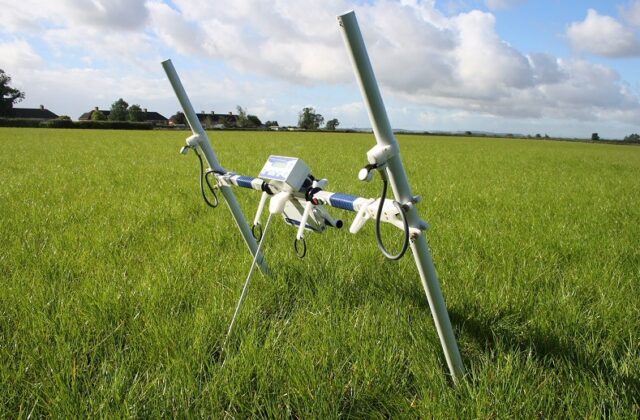
6. Estimation of the Value of Mechanical Stress
A magnetometer finds application in the assessment of the magnitude or value of mechanical stress in an object. This calculation generally gets done on ferromagnetic materials and substances that emit a magnetic field.
The magnetometer improves and enhances the quality of the alignment of the microscopic-level and scale magnetic domains. It helps raise the magnitude of the magnetic field in the ferromagnetic material.
7. Discovery and Detection of Coal Reserves
A magnetometer has two primary purposes and applications in the detection and discovery of coal reserves. It structures and shapes the map of the coal-laden regional basin. Additionally, it helps locate the imminent and underlying issues and hazards that can arise in a coal mine.
The magnetometer includes the presence and effects of basaltic intrusion like volcanic plugs and dykes to detect the dangers. They can damage the valuable equipment used for mining or create lethal situations that can endanger the miners.

Effects of Magnetometers in Everyday Life
Magnetometers find application in almost all electrical devices and appliances all around us, irrespective of their sizes. They get used in mobile phones, vehicles, airports, excavations, explorations, and so on. The most significant effects of a magnetometer in day-to-day life consist of the following:
1. Aircrafts
A magnetometer gets used in an aircraft as a heading sensor to help the air-borne vehicle navigate and steer in the correct direction. It is beneficial as there are no landmarks or indicators of location or direction present mid-air.
2. Underwater Vessels
When used and packaged appropriately, a magnetometer can get used underwater in various vessels and crafts. It can help detect the movements that ensue in the vicinity of the device and thus serves as a part of the defense applications. It can also discover the presence of ferromagnetic substances within the depths of the water. They also aid in various functions of geophysics research.
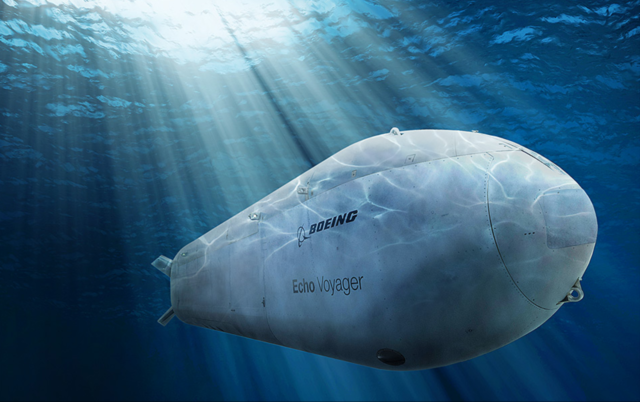
3. Other Environments
A magnetometer can work in almost all environments. It can operate on land, in space, or in low and high-temperature areas.
It is because they can withstand and handle the harshest conditions seamlessly. The most commonly used types in such cases include vector magnetometers, fluxgate sensors, hall sensors, and the ones used on particle accelerator functions and applications.









